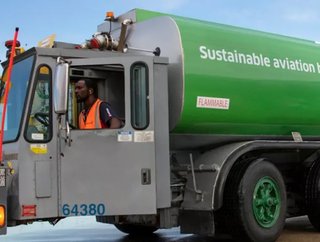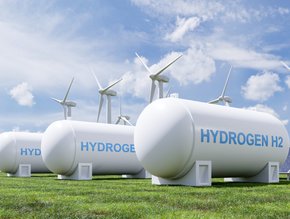Honeywell Hydrocracking Tech Revolutionises SAF Production

A new hydrocracking technology has been unlocked by Honeywell which creates a sustainable aviation fuel (SAF) that is 90% less carbon intensive than traditional fossil-based jet fuels.
Thanks to the new technology, 3-5% more SAF can be produced, facilitating a cost reduction of up to 20% and a reduction in by-product waste.
Honeywell’s all-new Fischer-Tropsch (FT) Unicracking technology takes liquids and waxes from processed biomass – like leftovers from crops, wood waste or food scraps – to produce SAF.
This format complies with stringent aviation industry standards, all while boasting a lesser environmental impact.
“As demand for SAF continues to grow, the aviation industry is challenged by limited supplies of traditional SAF feedstocks such as vegetable oils, animal fats and waste oils,” says Ken West, President and CEO of Honeywell Energy and Sustainability Solutions.
“When combined with the existing Fischer-Tropsch process, our new technology will expand the feedstock options available in the industry to sources that are more plentiful, ultimately helping improve our customers’ ability to produce SAF.”

What is biomass?
Biomass refers to renewable organic material that comes from natural sources such as plants and animals. It contains stored chemical energy from the sun that is produced by plants through photosynthesis.
It can be utilised as a fuel by burning as this results in heat production, or when converted to liquid and gaseous fuels. It is the only renewable energy source that can be converted into liquid biofuels like ethanol and biodiesel.
Although stemming from humble beginnings like wood fires for cooking and keeping warm, its use has evolved drastically. Biomass’ capabilities now include fuelling electric generators and other forms of machinery, maintaining its place as a commonly-used energy source.

The success of SAF produced from biomass is founded on its similar chemistry to traditional fossil-based jet fuel — the main difference being SAF’s carbon emissions are minimal compared to its polluting counterpart.
Strides in SAF
DG Fuels selected Honeywell’s FT Unicracking technology for its biofuels manufacturing facility in Louisiana – the largest in the world for making SAF from the FT process – that will produce 13,000 barrels of SAF daily from 2028.

“Using Honeywell's advanced technology, DG Fuels will supply enough fuel for more than 30,000 transatlantic flights every year, contributing significantly to reducing the carbon emissions of global air travel,” says Michael Darcy, CEO of DG Fuels. “This is a big leap forward in supporting the airline industry's goal of reaching net zero carbon emissions from international aviation by 2050.”
Elsewhere in the industry, Virgin Atlantic’s first 100% SAF-powered flight from London to New York helped pave the way towards greener aviation fuels for long-haul journeys. The flight, billed Flight100, proved SAF is the only mid-term viable solution for decarbonising long-haul aviation and was the first time a commercial flight powered 100% by SAF has flown across the Atlantic.
JP Morgan Chase, Meta and Deloitte are also among 20 major companies financing the biggest ever set of deals to buy 50 million gallons of sustainable aviation fuel.

“We are proud to be evolving our SAF procurement approach to multi-year agreements to further signal demand and appreciate and applaud SABA’s role in supporting its membership to advance the SAFc market,” says Susan Goldsmith, Sustainability Leader at Deloitte US.
Shell Aviation is also supporting this venture by supplying SAF, with a clear ambition to produce two million tonnes of SAF a year by 2025. This is reaffirmed by Jan Toschka when he sat down with sister title Sustainability Magazine earlier this year.

Shell’s then President of Aviation — now CEO of SAF company Zaffra — adds: “Although increasing SAF production is vital, it is one part of the solution. From ensuring the right SAF supply infrastructure is in place, to working alongside customers to share our expertise and experience of using SAF globally, and then looking ahead to producing SAF within regions—these are all important pieces of the puzzle we are looking to solve.”
*******************
Make sure you check out the latest edition of Energy Digital Magazine and also sign up to our global conference series - Sustainability LIVE 2024.
*******************
Energy Digital is a BizClik brand.






